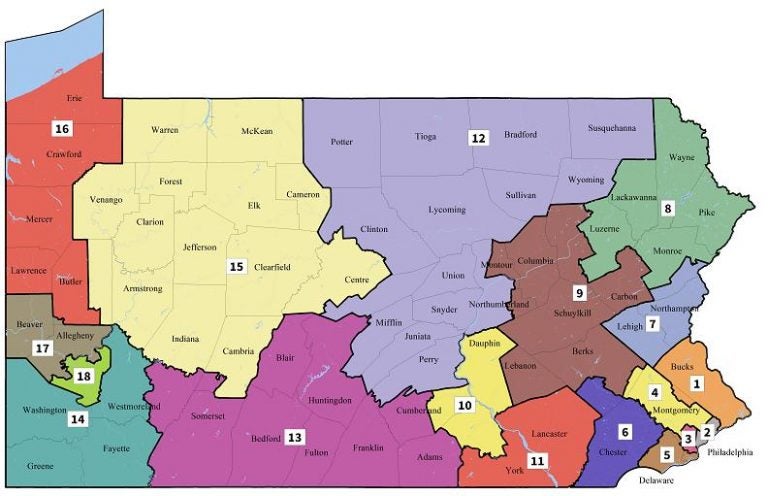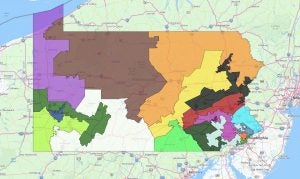Pa. legislature has long history of inaction on redistricting reform bills

Pennsylvania's new ongressional map as drawn by the Pa. Supreme Court after it found the previous version an unconstitutional partisan gerrymander.
Now that legal challenges to Pennsylvania’s new court-drawn congressional map have been rejected, state lawmakers have turned their attention to the typical process by which the state reapportions congressional districts every decade.
But some stakeholders are skeptical about whether any current proposals will ever make it to a vote.
There are four bills circulating in the Statehouse right now. All call for an independent redistricting commission, but differ on details such as the role the legislature would play in the process, the number of commissioners, their qualifications, how they’d be selected and how to gauge potential partisan influences.
Senator Lisa Boscola, a Democrat representing Lehigh and Northampton counties, has sponsored related measures since 2003, according to a Keystone Crossroads analysis of Temple University’s Pennsylvania Policy Database.
Boscola says she’s flexible on some details – as long as they support the main goal of her bill and the others in play.
“I’m not married to any of this except for that I know we need an independent citizens commission of people that are not affiliated with any [elected office], they’re not elected to any office. They’re not a lobbyist. They haven’t served, their family member…all that has to be taken out of the process in order to work,” Boscola said during a four-hour long hearing this week on the bills.
Proponents for reform acknowledge that partisan influences cannot be completely removed from the process.
Despite the added attention to the issue lately, some worry none of the bills will make it to a floor vote.
In Pennsylvania, redistricting process legislation tends to die in committee without much action, if any.
In the past four decades, just one such proposal has made it to the floor, according to an analysis of records from the Pennsylvania Policy Database.
That example didn’t seek to change the legislature’s role in redistricting, but to establish a process for appealing new maps.
It passed the General Assembly in 1997, but in 1998 failed to get the second consecutive approval as required of constitutional amendments, which are ultimately decided by voters.
WHYY is your source for fact-based, in-depth journalism and information. As a nonprofit organization, we rely on financial support from readers like you. Please give today.





